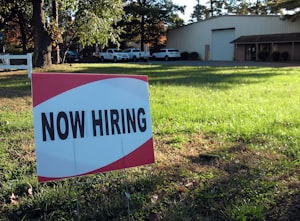I had a job once at a time when business was digitizing processes and also consolidating workflows. My job, at the lowliest end of the process of what today we'd call "content creation", was to submit information in a written form physically (as in it went in a envelope that a courier put in the back of a truck and drove to Toronto) that was then digitized manually (as in someone typed it in) by someone else.
This was a pretty normal concept at the time, as absurd as it seems today. But this meant that the person who handwrote the source data was removed by geography and intermediaries twice over from the person who typed it up. The data entry person didn't know the quirks of the original authors, the British guy who wrote some of his numbers and letters oddly, the guy from the Caribbean who was even more British than the Brit. The guy who thought so highly of himself he never finished anything. They just guessed at what they thought things said, entered it in and it was published. Published on paper. Very wrong a lot of the time.
I, and the rest of my lowly co-workers who took the complaints, would try to fix this. The company process was just to redo it. Period. It was fixed now, the outcome was correct, and no, they weren't interested in hearing from us how to fix the process of getting that data from its source through many hands to the paper it was printed on. They deeply resented any attempt to make it so these mistakes never happened again. The manager, and the manager's manager who reported to the CEO who reported to the VP of the parent company, who reported to the President of that company, who was the son of a CEO of an even bigger company that was the major shareholder in the parent company – they knew their processes were state of the art. Just look at the share price.
We might as well have been telling them their baby was ugly. Never tell someone their baby is ugly.
All this brings me to Kyle Dubas, and the first inkling of what really caused the divorce, not just from Brendan Shanahan, but from MLSE. It was process. It has always been about process and how you only trust a good process, not a flawed one.
Today's 32 Thoughts contained a bit about Dubas and what he wanted from MLSE that has been erroneously reduced by the fandom down to a conversation about autonomy. Dubas wanted full autonomy over Hockey Ops goes the meme, and Shanahan wasn't going to give up power. Full autonomy is a nonsense phrase. No one in an NHL hierarchy has full autonomy over anything, and no GM of any hockey team anywhere has full autonomy unless they own the team. And as the OHL has had to show to the guy who bought the Niagara IceDogs, even an owner isn't the fuedal lord he might think he is.
Per Elliott Friedman, the issue with Dubas appears from the outside to be this: Dubas was concerned about the busy summer with a lot of decisions to be made. He was particularly concerned about the process whereby he brought decisions to Shanahan who took them to the board of MLSE, who discussed them, got back to Shanahan in the fullness of time, who then told Dubas yes or no. Dubas's concerns, per Friedman's sources, were around the potential for leaks of information scuttling deals and for this taking so long that things couldn't get done in time.
Dubas proposed a streamlining – no details of that are known – and this "was not received well". In other words, he told them their baby was ugly, that their corporate structure – the thing the MLSE board thinks they're hot shit at – was outdated and moribund. He told them they weren't nimble enough for the coming NHL offseason.
Now, a cynic might say that Dubas was just using this offseason as an excuse to cut Shanahan out of the information flow because he was tired of being vetoed. But Dubas has a point about this offseason, and the Leafs situation in particular.
Dubas intentionally structured the team contracts so that when Auston Matthews was eligible to re-sign, there was room to make any sort of move around him to allow for that eventual raise. There's very few forwards under contract, and that's a lot of jobs to be filled. The period from June 15 to July 1 is when most of that work happens.
This season the salary cap ceiling is still a very open question. And it won't be finalized until very close to the draft when the GMs meet. That time frame to negotiate extensions and to get the team built for next season via trade or free agency is shorter than normal.
The draft is in a strange spot, nearly the end of June, and the CBA states that Qualifying Offers for RFAs are due the later of June 25 or the Monday after the draft. The Monday after the draft is July 3. Unless there is some change to this, we actually have two free agent days, and qualifying offers might be issued based on what happens on July 1.
Update:
Normally, Qualifying Offers to Restricted Free Agents (required by teams to retain their RFA rights) are due by the later of June 25 and the Draft.
— PuckPedia (@PuckPedia) May 22, 2023
This year, because the draft is June 28/29 and free agency starts on Sat July 1, the Qualifying Offer deadline is June 30.
If Dubas's preferred plan was to have the Matthews extension negotiated so it can be registered on July 1, some clarity of mind about the William Nylander extension, a plan for Micheal Bunting, Noel Acciari, Alex Kerfoot and most importantly, Ilya Samsonov, and to bring all that off in the course of a very few days as the the draft approaches where he might want to trade for a goalie or trade away Matt Murray – well, that's a lot.
Dubas might very well be in the right on this organizational issue. But if he did propose a change from below – to all the people involved here, he is the lowly end of the decision chain – then no one should be surprised that the board of directors who see the business as a content vertical within the massive multi-dimensional media companies who own MLSE was unimpressed.
The other thing that Friedman reported was that Fenway Sports, the new owners of the Penguins, do now have permission to speak to Dubas, and that his own earlier reports that they want a President of Hockey Ops and a GM might not be quite true. They want, it is now believed, a single key hire for the team, and then they will build around him.
MLSE did that back in the day. They hired Brendan Shanahan and then Shanahan built around himself – in a very strange order, if you give it some thought – AGMs, GMs, coaches and eventually an entirely new managerial department.
It may have been inevitable that when Shanahan hired the process-oriented Dubas, the man who thinks about how you get things done, and isn't satisfied just by the outcome, that this day would come.
Some years back I criticized Sheldon Keefe for not being a nimble enough manger of the roster and deployment. He's not reactive, and that's good. He doesn't flap to a new direction with every change in the wind, but he seems to be too rigid and unyielding at times. Too sure that he just needs to keep doing what he's doing.
I was struck by his statements in his largely ignored postseason media availability about how he wanted to be sure he wasn't sticking too hard to processes that weren't working. That you had to go back over and question everything and make sure your assumptions are right. That is the very important check on process-oriented planning and thinking, and it gave me a tiny grain of hope that even if he stays as coach things might get better. But it makes you very unpopular when you apply this thinking to someone else's area of control.
You see, that's the way they've always done things and if it's good enough for them, it should be good enough for you.




Comment Markdown
Inline Styles
Bold: **Text**
Italics: *Text*
Both: ***Text***
Strikethrough: ~~Text~~
Code: `Text` used as sarcasm font at PPP
Spoiler: !!Text!!